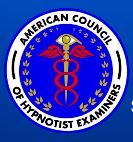Effectively Release the Symptom of Addiction
 By Rene Brent
By Rene Brent
I always like to start by asking a straightforward question: is the traditional approach to treating and releasing addiction working? Logic and research say NO! Addiction is a growing crisis in this country, and traditional methods are failing with a recovery rate of 10-13%. An addict may pay $30-80 thousand for a 30-day in-house rehab program. Centers and Alcoholics Anonymous tell their clients it is not IF you will relapse, it is WHEN. How can we be satisfied with this?
The short medical model definition of addiction is that it is a primary, chronic disease of brain reward, motivation, memory, and related circuitry. Dysfunction in these circuits leads to characteristic biological, psychological, social and spiritual manifestations. Addiction is characterized by the inability to consistently abstain, impairment in behavioral control, craving, diminished recognition of significant problems with one’s behaviors and interpersonal relationships, and a dysfunctional emotional response. Like other chronic diseases, addiction often involves cycles of relapse and remission.
In my opinion, treating addiction as an incurable chronic disease and telling addicts, “Good luck out there and, by the way, you can look forward to this cycle of relapse and sobriety for the rest of your life. And don’t forget, you are powerless over this.” Wow, this message can be devastating, and often takes away confidence and hope of a thriving sober life. This is negative programming and sets clients up for an inability to surf an urge and make new decisions. Therefore, they use and swim in shame and guilt.
As a Hypnotherapist, I understand and utilize the model that past events/relationships, imprinted younger than ten years old, lead to false beliefs that lead to negative emotions. Negative emotions cause the subconscious mind to create symptoms that are intended to help the mind and body move away from pain, protect, etc. In our work, we know that releasing the echoes of the past can release the triggers and begin to release the symptom of using. Therefore, relapse prevention is in place.
I grew up around many addicts. I have had a nephew, and two siblings die from addiction. I have seen people stay sober and many relapse. I was an ER/Trauma nurse and was in the room with too many families when they had to hear the words that their loved one had died from an overdose or accidents/behavior directly related to addiction. Experiencing this broke my heart and led me to my career as a Hypnotherapist in order to develop a method to release the symptoms of addiction effectively.
Research shows that utilizing hypnosis to reprogram and retrain the brain has a recovery rate of 60-80%. Now that sounds better! Clients cannot out-think addiction. They must let go of the echoes of the past, build confidence and belief on a subconscious level. The answer to recovery is not sobriety but connection. Reconnection to new possibilities and forgiveness is essential to living free.
This comprehensive method addresses many aspects of addiction and recovery utilizing hypnosis, EFT, pattern interrupt, aversion, NLP and breath work. I find that putting it together in a complete 3-4 day rapid recovery program helps addicts recover, but it also helps hypnotherapists increase their business and bottom line. That makes me smile.
After years of working with addiction and relapse prevention, there are a few things I have learned from my clients. I know it is difficult to stay clean and sober when you believe you are worthless and unlovable and the traditional approach to addiction is not working. I get excited about the science that backs up a new approach. It is a good day when we can help clients untether from the past and cross the Bridge to Freedom. There is hope!
It is my passion to change the conversation and approach around addiction and relapse prevention.
Rene Brent is a Certified Clinical Hypnotherapist and author of the #1 International Bestseller, “How Big Is Your BUT?” and her next book, “Bridge To Living Free.” Rene is on faculty at The Institute of Interpersonal Hypnotherapy and has been an RN for over 28 years.

